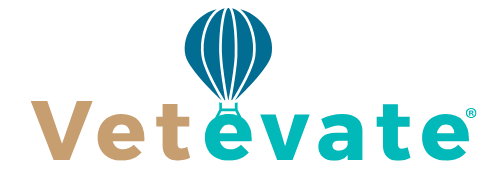Veterinary job boards are a vital resource for job seekers who are committed to building a career in animal health and welfare. Unlike general job boards, veterinary-specific platforms cater to a niche audience, offering listings that are directly relevant to those trained or interested in veterinary medicine, animal care, and related fields. One of the primary reasons job seekers turn to these platforms is the precision and relevance of the opportunities presented. Whether someone is a recent graduate from a veterinary school, a certified veterinary technician, or an experienced practitioner looking to relocate or shift specialties, these job boards provide curated listings that save time and effort. Instead of sifting through irrelevant postings on general employment websites, candidates can focus their search on roles that align with their credentials, interests, and long-term career goals.
In addition, job seekers often use veterinary job boards to discover opportunities they might not find elsewhere. Many private clinics, research institutions, non-profits, and even government agencies prefer to post their openings on industry-specific platforms where they are more likely to attract qualified applicants. This exclusivity means that job boards serve as a gateway to hidden job markets within the veterinary world. From exotic animal practices and equine clinics to laboratory animal care positions and wildlife rehabilitation centers, a veterinary job board allows candidates to explore diverse career paths that align with their specific passions. In doing so, they empower job seekers to make more informed choices about where they want to work and the kinds of environments in which they will thrive.
Networking and Industry Insights
Veterinary job boards are not just about listings; they are hubs of industry knowledge and connection. Many job seekers visit these platforms to stay informed about trends in veterinary employment, salary expectations, and evolving demands in specific regions or specialties. For instance, someone interested in pursuing a career in emergency veterinary care might use a job board to assess where demand is highest and what employers are offering in terms of pay, benefits, and work-life balance. This real-time labor market intelligence is valuable, particularly in a field where location, specialization, and experience level can significantly influence employment prospects.
Another important reason job seekers frequent veterinary job boards is for the opportunity to build professional networks. These platforms often include features such as employer profiles, recruiter contacts, and links to professional associations or events. By exploring these connections, job seekers can identify potential mentors, discover continuing education opportunities, or find internships and externships that serve as stepping stones to future employment. Even if a job seeker is not currently looking to make a change, regularly visiting a veterinary job board helps them stay plugged into the broader professional community, allowing them to be proactive rather than reactive in their career planning.
Moreover, job boards often offer articles, webinars, and other educational resources that keep candidates informed about licensing requirements, certification updates, and best practices in veterinary care. These resources can help applicants refine their résumés, prepare for interviews, and better understand what employers are looking for in a competitive market. In this way, job boards serve as both a job-seeking tool and a professional development platform, making them an indispensable asset for anyone pursuing a career in veterinary medicine.
Navigating Career Transitions and Advancement
Veterinary professionals at various career stages use job boards to navigate transitions, whether they are shifting from clinical practice to academia, moving from private practice to industry, or exploring opportunities in research, policy, or public health. The veterinary profession is rich with possibilities, but making a transition—especially after years in one role—can be daunting. Job boards provide the clarity and structure needed to explore new directions with confidence. For example, a veterinarian who has spent years in small animal practice might consider moving into pharmaceutical consulting or animal welfare advocacy. Seeing such roles posted on a job board helps to demystify the process and shows that alternative paths are not only possible but actively hiring.
Likewise, veterinary technicians, assistants, and support staff often visit job boards when looking to advance in their careers. Whether pursuing additional certifications, management roles, or positions in specialty practices, these professionals benefit from understanding how their current skills align with higher-level responsibilities and compensation packages. Veterinary job boards frequently include information about required qualifications and desirable experience, giving job seekers a clearer picture of what is needed to reach the next step in their careers. This transparency enables them to plan accordingly, perhaps by enrolling in relevant coursework or seeking new responsibilities in their current roles.
Some professionals may also turn to veterinary job boards during periods of burnout or dissatisfaction, searching for work environments that offer better support, culture, or work-life balance. Job postings can offer a glimpse into the values and priorities of potential employers, helping job seekers identify roles where they are more likely to feel fulfilled and appreciated. In an industry known for emotional labor and long hours, being able to identify a positive and sustainable workplace is crucial—and job boards help candidates do just that.
Addressing Geographic and Lifestyle Considerations
Geography plays a significant role in veterinary employment, and job seekers often use veterinary job boards to identify roles that align with their desired location or lifestyle. Whether someone is seeking to move to a rural community, a bustling metropolitan area, or even another country, these platforms make it easier to find employers in specific regions. This is particularly useful for dual-career households where one partner may need to coordinate their job search with another’s, or for professionals looking to return to their hometowns or seek a better quality of life.
Job seekers may also be exploring different work arrangements such as part-time schedules, relief work, telehealth roles, or seasonal employment. Veterinary job boards often have filters and categories that allow users to narrow their search based on these preferences. This level of customization ensures that candidates can find jobs that not only meet their professional goals but also fit their personal lives. For instance, a parent returning to the workforce after a hiatus might look for positions with flexible hours, while a recent graduate may be willing to relocate for a full-time role in a specialty hospital. Job boards cater to this diversity by providing detailed job descriptions and search tools that empower users to take control of their employment journey.
In some cases, job seekers are interested in international opportunities or humanitarian work. Veterinary job boards that include listings from non-governmental organizations, animal rescue groups, or wildlife organizations can be a gateway to global experiences that combine travel with meaningful impact. Whether working with underserved communities, helping manage zoonotic diseases, or assisting in conservation efforts, these roles appeal to individuals seeking both purpose and adventure in their work. The accessibility of these postings through veterinary job boards makes such ambitions more attainable.




